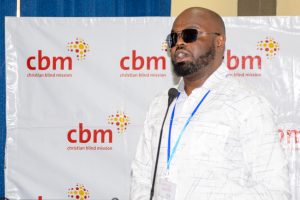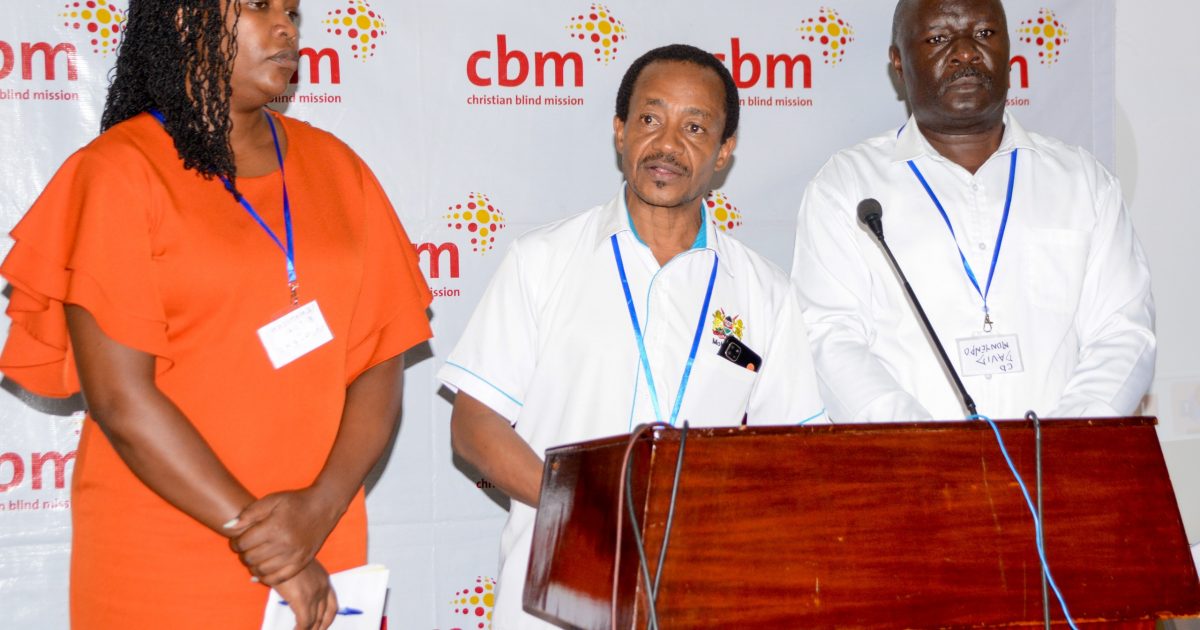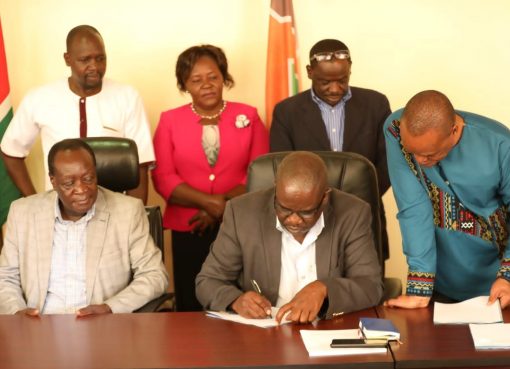Stakeholders in the eye health sector have renewed calls for the mainstreaming of eye care services across the country, citing the rising burden of visual impairment and blindness.
The call was made during a meeting convened by the Christian Blind Mission (CBM) to review the progress of the Visual Impact Project (VIP), a collaborative initiative with the Ministry of Health, Ministry of Education, and seven counties aimed at scaling up eye care services.
The stakeholders emphasized the urgent need for a paradigm shift in the management of eye diseases to prevent millions of Kenyans from losing their sight.
Kenya Society for the Blind (KSB) Chief Executive Officer, Samson Waweru, revealed that approximately 300,000 Kenyans are currently blind, with an additional 15 million at risk of losing their vision.
He highlighted the achievements of the VIP project, which was launched in 2021, noting that over 5 million Kenyans have been screened for various eye conditions.
Of these, 124,000 have received spectacles, and 22,000 learners have been supported with reading and prescription glasses.
“We have also conducted 3,000 cataract surgeries, restoring sight to individuals who had lost hope of ever seeing again,” said Waweru.
Fredrick Haga, Director of Special Needs Education (SNE), lauded the project’s impact, particularly in supporting learners with visual impairment.
He noted that several assessment centres have been renovated and equipped with modern diagnostic tools, greatly improving access to specialized services for students with special needs.
Kiambu County Eye Coordinator, Dr. Mudhira Kadhadine, lamented that despite its critical importance, eye care continues to be sidelined.
She credited the VIP project with revitalizing the sector, giving hope to millions of patients.
“Eye care has long been marginalized, yet it significantly affects quality of life. Poor eye health is linked to mental health challenges, including depression and autism,” she said. adding that the project has helped fill critical gaps in the national eye health strategy.
Bomet County Executive Committee Member (CECM) for Health Dr. Joseph Sitonik, praised the project for its role in accelerating eye screening at the primary healthcare level.
He said that health facilities have been equipped with basic eye care equipment, while the county has developed an eye care policy and strategic plan, complete with dedicated budgetary allocations.
Embu County CECM for Health, Jamal Runyenje, reported that over 300,000 residents have been screened since the project began.

Photos by Chris Mahandara.
He noted that despite eye care being a vital part of overall health, it has often been overshadowed by other health priorities.
“We must enhance the allocation for eye care under the Social Health Authority (SHA) to ensure more Kenyans benefit. The SHA is working well in the counties, but the current eye care package is insufficient and needs urgent review,” he emphasized.
CBM Country Director, David Munyendo, said the VIP initiative has reached over 4.7 million people in Meru, Embu, Kajiado, Kiambu, Kwale, Bomet, and Vihiga counties through strategic partnerships with referral hospitals.
He explained that the project aims to boost both demand and supply of eye care services by increasing awareness and improving service delivery.
As part of the initiative, high-end eye care equipment has been distributed to selected health facilities, new eye units have been constructed, and healthcare workers trained to improve service coverage and patient outcomes. Outreach services have also been launched, and technical working groups formed to coordinate localized responses.
“Three years after the inception of this project, we are celebrating the gains,” Munyendo said, adding, “No one should go blind from avoidable causes.”
Dr. Michael Gichangi, Deputy Director at the Ministry of Health and Head of the Eye Health Division, affirmed that the government is scaling up public awareness and leveraging technology to enhance service delivery.
“This project has allowed us to conduct national surveys to better understand the scope of eye diseases. It has also significantly increased cataract surgical coverage and access to refractive services,” he noted.
By Chris Mahandara




